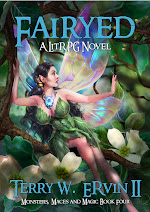
All too often I’ve come across writers working on a first novel involving a character carrying and using a firearm, and they (both the author and the character) simply refer to it as "a gun" and "my gun. "
Sure, it depends on the context. A steamy romance where the main character comments that she keeps a gun in her desk drawer just in case is different than a hard-boiled mystery where a police detective ventures into inner city neighborhoods every day packing heat.
In the context of some stories, writers don’t even narrow the gun used to a revolver, hunting rifle or shotgun, but they write as if the individual is competent, if not an expert with the firearm they’re using.
Quite often, upon asking a writer whose manuscript I am reviewing what type of firearm the character used in a particular scene, the response often is, “I don’t know.” That is usually followed up by, “I don’t really like guns,” or “I don’t know the first thing about guns.” Then they ask, “Does it really matter?”
I think it matters. The limitations of a firearm based on the caliber or the effective range makes a difference. Can it be carried concealed and if so, where and how will that affect the character’s wardrobe? Failure to incorporate such basic knowledge could annoy, if not turn off, an entire segment of an author's the potential reading audience.
Does the writer have to own or be an expert in firearms to include them in their fiction? Absolutely not. But an author, for example, who researches in great detail the layout of a city where the novel’s action takes place shouldn’t brush aside proper research on the firearms intimately involved in the novel’s action.
Online research is a good place to get the basics. Visiting a local gun store with questions will often net in-depth answers. An uncle that’s hunted whitetail deer every fall since he was twelve could provide enough details about how a shotgun works, its recoil, types of shells, strengths and limitations to enable the prose to be both authentic and accurate. In my experience it’s a rare instance where someone balks at helping an author with content in an area where he or she is experienced and knowledgeable.
A little research effort can pay great dividends in the depth, quality and authenticity of a writer's manuscript.























